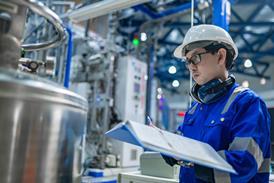Steve Elliott Chief Executive of the Chemical Industries Association said:
“It is long overdue, but this package of measures is positive news for chemical businesses.
In particular, we warmly welcome full expensing being made permanent. It is of significant benefit to capital-intensive sectors such as chemicals, and I hope the longer-term certainty and incentive leads to more investment in this country.
The complete adoption of the Harrington Review recommendations on attracting more foreign investment should give a further boost to capital intensive industries such as chemicals. In our view, the recommendations encouraging a more proactive, joined-up and, frankly, professional UK approach to winning investment, apply equally to domestic opportunities as they do international.
Additional monies for apprenticeships, and the extension of investment zone/freeport incentives all add to the good news. So too, do the extension of the CCA scheme, relief support for Carbon Capture and Storage and extra funding for Innovate UK. We also look forward to the promised confirmation on policies encouraging investment in recycling technologies.
All of these measures are parts of what ought to be a fuller UK Industrial Strategy, let’s have one”.
ENDS
To speak to Steve please contact Simon Marsh on 07951 389197.
- Businesses who make chemical products and solutions are integral to something like 96% of all manufactured goods. Whether it is ingredients for food and medicines; paints and coatings for cars and planes or materials for mobile phones and electric vehicle batteries, the chemical industry is truly the “industry of industries” – also playing a critical role in the nation’s response to Covid-19 through its supply of hand sanitiser, PPE and vaccine ingredients.
- Chemical businesses are located throughout the UK, with many of them clustered together in the North East of England, North West of England and Central Scotland. These factories and laboratories, operated by a highly trained and skilled workforce, make a significant contribution towards the UK’s productivity performance.
- Nearly 145 thousand people are employed in the sector and nearly half a million have roles that are dependent on the sector. Chemical workers typically earn around 25.4% more than other manufacturing industries and almost 37% more than the average worker.
- From Runcorn to the Humber Bank; from Teesside to Grangemouth, chemical businesses and their employees right across the country are essential to the Government’s levelling-up agenda.
- We are the country’s second biggest manufacturing exporters, sending goods to the value of more than £50 billion to other countries. The EU represents our most important market, but we continue to work closely with Government to inform and secure UK trade deals with other key chemical markets such as Japan and the USA.






















